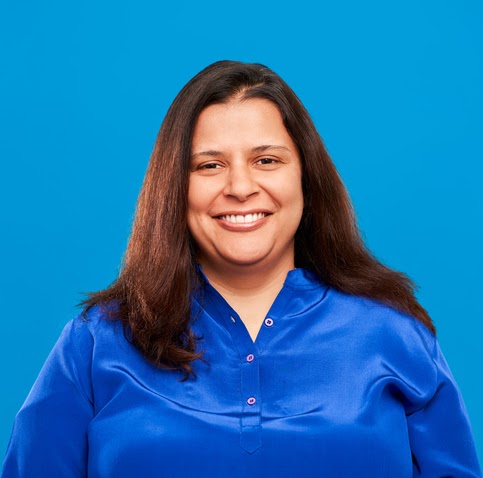Pushing Boundaries: Your Story Inspires with Diya Jolly
Diya Jolly, Okta’s new Chief Product Officer, is a lifelong learner who strongly advocates seeking opportunities to grow and challenge one’s self. As she picks up the reins to lead Okta’s cutting-edge product development, she lets us in on her professional beliefs, personal philosophies, and her ability to turn setbacks into successes with grit and positivity.
Where did you grow up? How did your native culture influence your development?

As a North Indian woman, many of my family and friends were worried that I wanted to aggressively pursue a career. They thought I was going to destroy my life and have no chance in the professional world because men were “naturally built” to go out and work. These people cared for me deeply and were genuinely concerned. But today, they are my biggest supporters. Their worries were born from their own context and experiences, without malice, just caring.
Who are your personal and professional mentors?
I’ve been so lucky to have multiple mentors throughout my life, but the two most impactful were my mother and my husband.
At a time when women in India were expected to get married and solely take care of the home, my mother strongly believed that women should stand on their own and add value beyond their immediate families. She instilled this belief in us and pushed us to excel. Coming to the U.S. for my undergraduate work, pursuing a master’s degree, and always choosing to push myself—these experiences were all influenced by her.
My husband has been my guide and support in adult life. He believed in my potential when I didn’t. He has always pushed me to stretch myself both personally and professionally. It’s because of him that I grew to learn from personal and professional failures, to become resilient, and to come back stronger.
The message from both of them was, “I believe in you; pursue what you want.”
What are your most notable professional milestones?
This is always a hard question for me to answer. The growth and learning in my career are a sum of all the experiences, learnings, and investments that people have made in me. I see it as a continuum, a series of steps that will hopefully allow me to make a positive imprint on the world. My son’s birth actually made me a significantly better leader and manager. As most people rightfully say, children teach you a lot: to be more patient, to be selfless, to do things for others, and to strive to be the best version of yourself. This is a cliché, but completely true.
Do you have a mantra that sustains you during difficult professional and/or personal challenges?
I genuinely believe that anything that doesn’t challenge you doesn’t allow you to grow or make a truly distinctive impact. Do the things only you can uniquely do.
I’ve also learned to trust my gut and block out the voices (even the well-intentioned ones) that don’t align with my own logic. I’ve been told by my managers and peers that I was always willing to take risks and stretch more than others. Given my personal experiences, I’ve come to think that I’m just less scared of risk and failure than others.
In senior management, I’ve realized that from a gender perspective, it’s not balanced at the top. Professional relationships that may come easily for non-minorities and men are sometimes harder for minorities and women to establish. So, I’ve learned my own way of establishing those relationships: find the best in people and help them succeed. That’s a sure-fire way to establish long-lasting relationships.
What’s the career and life advice you find yourself giving most to emerging professionals and underrepresented groups?
If you don’t try, things will not change. Keep trying. A great way to inspire yourself is to say, “The only way I can make this easier for other people is to go through it myself.” Find the right nurturing situations because there are many in the world.
Other advice I’d give for those early in their careers would be:
- You don’t need to know your exact path. You can’t carve a perfect path in life because you can’t know all your options. Have a general sense of the direction you want to move towards, then make decisions based on your available options.
- It’s helpful to have a variety of experiences early on in your career. This allows you to explore and make informed choices.
- The most important thing: try to work with the right people. In other words, don’t choose jobs, choose teams.
- In the first 10-12 years of a career, most people obsess about compensation. Instead, prioritize what you will learn. Always seek out the most challenging situations.
We continue to be inspired by Diya, and look forward to all she has to offer Okta in the years to come! Learn more about Diya’s professional path in our recent post, Why I joined Okta as their Chief Product, and stay tuned for the next edition of Your Story Inspires.

